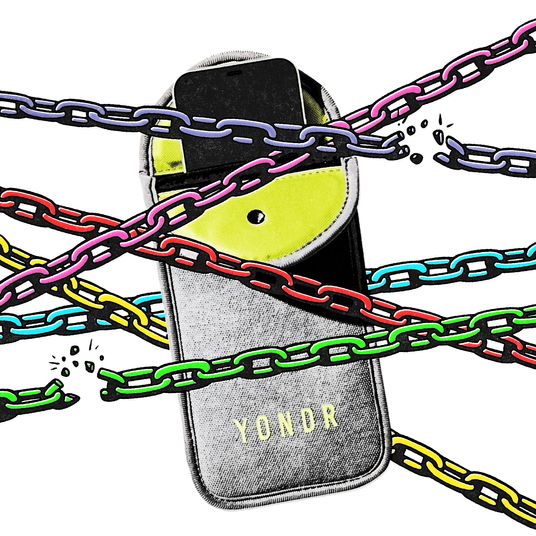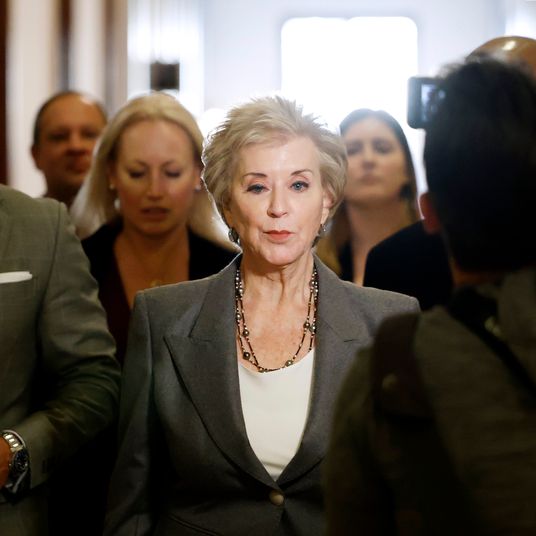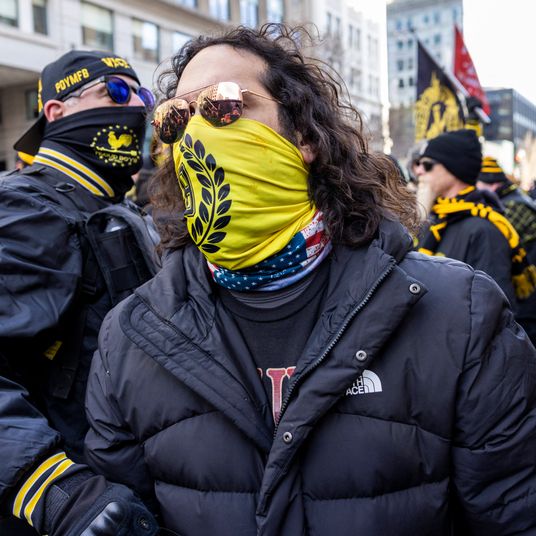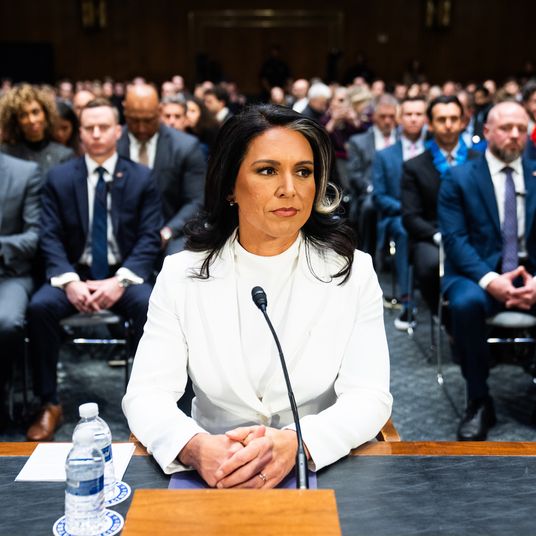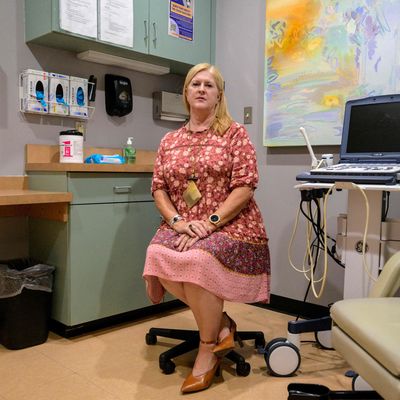
In April, abortion provider Julie Burkhart opened her newest clinic, Wellspring Health Access, in Casper, Wyoming. Wellspring is the only clinic to provide surgical abortions in the state, and its opening had been delayed for months because an anti-abortion activist allegedly set fire to it while it was under construction. As a former employee of Dr. George Tiller, who was assassinated in 2009, Burkhart has seen the anti-abortion movement at its most violent and remains determined to provide abortion care. Though the future for abortion rights in Wyoming looks uncertain, Wellspring is taking appointments and providing a full range of reproductive-health services to people in Casper and the surrounding area. While the clinic provides care, it also fights to keep abortion legal in Wyoming. Attorneys for Wellspring have joined a group of plaintiffs challenging two recent anti-abortion laws in Wyoming: One would ban medication abortion and is set to take effect in July, and the other is a near-total abortion ban, which is on hold as litigation proceeds.
I spoke with Burkhart about her work, the future of Wellspring, and the importance of providing abortion care in rural areas and Republican-led states like Wyoming. This interview has been edited for length and clarity.
What drew you to reproductive-justice work, and what keeps you in it?
Well, I was raised during the second wave of the feminist movement. My mom was active in that movement. As a child, she would take me to meetings with her, and I always had this sense that people deserve equality and that women deserve to have equal rights. And so it was a very natural progression as I got older, when I started working at the very first clinic back in my college days. It was just all this natural progression from my formative years and into early adulthood.
Then I think that there were two pivotal moments for me that I think helped to really define my career. One was the Summer of Mercy. I’d been working during the summer at a clinic in Wichita, Kansas, when I was back visiting my family on break from the university I attended in Seattle. And the Summer of Mercy was a pivotal point in that it made me really stop and think about the anti-choice movement, their goals, and the rights of people to exercise authority over their own bodies.
And the second pivotal moment was when my boss, Dr. George Tiller, was assassinated. That was, I will say, at a higher pitch than the Summer of Mercy. But once again, I had to really step back and reflect and decide whether this movement was the right place for me to be and to work in, or if it was time to pack up my bags and move on somehow. That moment really helped to define, for me, that we cannot allow this tyranny of the minority to dictate the outcomes of other people’s lives. And so those are the things that have kept me going over the years.
You spent years working for Dr. Tiller, as you mentioned. What are some of the most influential lessons that you gleaned from him, and how do they shape the way you work now?
I absolutely loved working for him. It didn’t begin this way in our working relationship, but the way it turned out was he became one of my mentors and one of the people who I think helped bring me into adulthood and to help me navigate difficult situations. One of the things he would always say is “Underpromise, overdeliver.” Prepare 110 percent, 120 percent and then you’ll be lucky to get it at 100 percent when you’re finally at the end. He instilled in me and all of us that it’s better to be forward-looking to solutions rather than focusing and dwelling on our problems. And we can certainly say we have a lot of problems with abortion rights and in this movement at this time, but that we owe it to ourselves and owe it to the people we serve to be focusing on those solutions and how we can think creatively and continue to push forward in a firm manner so that we can bring those solutions to fruition.
I grew up in a very conservative evangelical home where abortion was obviously a hot topic, and I’ve heard leaders of the anti-choice movement say that violence is a fringe problem and that it’s not mainstream. But in your view, how important has violence been and how important is it now to the erosion of abortion access in this country?
Violence has been pervasive in this movement, unfortunately. We’ve had a number of physicians to front-office staff to security guards assassinated. Just this past 18 to 24 months, we’ve seen a number of arsons around the country focused on abortion-providing clinics, as well as other types of vandalism and threats to clinic invasions. It is pervasive, and I think for me, it’s just crystal clear that it’s not just the fringe who are committing these violent acts. It’s folks within the mainstream anti-abortion movement who through their actions, through their language, help to perpetuate this violence. So if you look at the person who murdered my boss and if you look at the rhetoric and the pressure that was put onto Dr. Tiller during the years leading up to his assassination, all of those events led to the one person who ultimately pulled the trigger. But in my mind, it was a collective action.
Your Casper, Wyoming, clinic opened in April. It was attacked while it was under construction. What has the local reception been like since it opened?
We have definitely had people calling the clinic, making appointments for abortion care, contraceptive care, general GYN care. We do gender-affirming appointments for people in the community, and we have seen a really good response from people not only in Casper, but also from around the state where otherwise they would have to be driving to Colorado or potentially another state to access services.
We have had and continue to have people who come out to the clinic to protest. So far it’s the usual tactics, trying to convince people to go to a crisis pregnancy center instead of coming into the clinic, holding signs, singing, praying around the clinic. I’m grateful that we have not faced any other violence. I hope we will not, but we do have protestors out of the clinic every week.
I’m from a conservative, rural area, so I was struck by something you recently told The New Yorker. You said, “It’s not right for us to say that we are champions of social justice but yet we are not going to go the full stretch for folks in places where it is less hospitable.” What does it look like to go “the full stretch” for people who are in rural communities or Republican-led states right now?
So with Roe having fallen, we have states around the country that have good protective laws where people have to travel to. Those are the places where people can access abortion care at this time. Prior to Roe falling, we had states such as Idaho, Utah, Oklahoma, Arkansas, Louisiana, Mississippi that were allowed to pass more and more restrictive anti-abortion laws, which make it harder for providers to open a clinic and harder for patients to access. And during that period of time with abortion having still been legal in these states, but where it is more challenging, I think that there was a propensity to say, “Well, we need to be able to navigate.” It’s kind of like water going around big rocks in a river and going … You naturally want to navigate to an easier place.
But what is really the reality then if we say to people in these states that we are not going to step up to the plate, work on strategies and tactics so as to help to preserve reproductive rights, and also to set up facilities so that people can access abortion care? It leaves a certain segment of our population in the lurch. Not everybody can get on a plane. Not everybody has a car or has a car that’ll even make it 200 or 300 miles to a clinic. Some people don’t even know where to look. And so I guess going back to your question, it just makes me question if we’re not fighting for that segment of the population, then are we really fully embracing reproductive freedom for all people in this country?
Going to your background as well, growing up in a more conservative environment, what I’ve always said is just because you might live in a more conservative area doesn’t mean that people don’t want or don’t need to access abortion care. And in opening clinics up in Oklahoma and Kansas, my argument was because if you look at Republican versus Democratic voter registration, if this was an issue that fell along party lines, our doors never would’ve stayed open. So people of all walks, of all stripes need access to abortion care at certain times in their life.
As an abortion provider, could you talk about what happens to other health services when abortion access is restricted in a place? What happens to gender-affirming care or contraception access or affordable gynecological care? Are we looking at overall reproductive-health care deserts in some places?
Yes, definitely so. Just recently there have been several articles in the news about Wyoming and Idaho OB maternity wards closing. So when we look at the restrictions on reproductive-health care, where we typically think about abortion care, one, it has a chilling effect. Two, it allows that ideological mind-set to become more pervasive in reproductive-health care. For example, in Casper, we have been seeing quite a few people who simply want to access contraceptive care. They’re not coming to us for abortion care, but they are challenged when it comes to accessing low-cost quality family planning. And so these policies do have an effect on all outcomes of one’s reproductive life from birthing to abortion care, which also has an impact on children and families as well.
Should Wyoming pass a near-total abortion ban, what would happen with Wellspring? Would it simply close, or would you pivot to providing other services?
I think we would absolutely do our best to continue to provide other services to support people in the community and the state. My goal is that we make it through this court case that we have going on in Wyoming, and that the court will see that that’s a protected part of the state constitution and that people will be afforded their rights. So I’m remaining optimistic, but I would say we would absolutely do our best to figure out how we were going to go to plan B and navigate from there.
When I talk with my friends about the state of reproductive rights, it’s hard to feel any reason for hope right now. Do you see any reasons for hope or for optimism, as dire as things seem?
Yeah, things are definitely dire. It pains me to think of the people living in states where abortion is banned and there’s a risk of prosecution of not only patients but providers. I think that one is looking at the states around the country where we have ongoing legal challenges. I’ve been heartened by some of the decisions that have come from some of the states. I think where we have seen decisions that have been more adverse in states that have outright banned abortion, then this is a time for us to go back to the drawing board and to figure out how we are going to regain that power and that leverage in these states that have decided to strip people of their rights to access abortion care. If we can take that and make this into a long-term strategy, and I’m not talking one election cycle or two election cycles, I’m talking more generational work, I have confidence that we can get there.
What do abortion providers like you need right now from other reproductive-rights advocates or from elected officials?
Elected officials can ensure that they are advocating for and working to pass the best possible policies that are going to protect people in their states. One is Medicaid expansion. To me, that’s a no-brainer. Why can’t we expand Medicaid in some states to make sure that people are able to access health care via Medicaid? Making sure that we have laws enacted, policies enacted that are going to protect all citizens. And as far as reproductive-rights advocates, we see more and more patients who need funding. People are, as I’d mentioned earlier, having to travel further. They need access to transportation, lodging, food, child care. There are all of these additional needs that a certain segment of the population prior to Roe falling didn’t necessarily need. So we’ve seen that request for funding increase. I would say call your local clinic and ask if there are volunteer opportunities. There would certainly be, I would assume, opportunities at clinics around this country to help support the work of patient care.
What’s next for you and for Wellspring?
Well, what is on the plate right now for Wellspring is, one, since we’ve only been open a few short weeks, to ensure that all of our processes are in place and that we have a smooth running system. So in starting up clinics, there are always little kinks to work out along the way. So we’re going to be really focusing on that. And from there, we’ve been having internal conversations about other points of access where we could go to help other people in other communities access abortion care, who don’t have that more immediate ready access at this time. And then, of course, ongoing litigation. At some point, we expect to go to trial. That’s not been set yet, but we’re keeping our finger on the pulse of litigation. There are six of us who joined together and we filed suit a year ago, and we’ll see what happens here in the future.


























